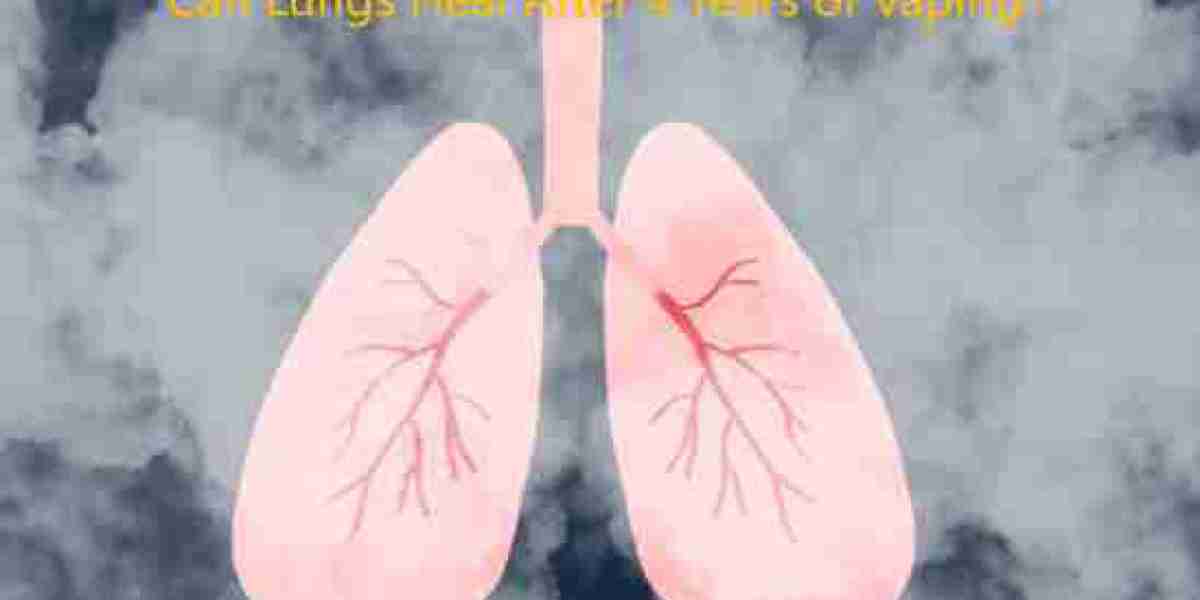What Do 4 Years of Vaping Do to Your Lungs?
Immediate Effects of Vaping on Lung Health
When you start vaping, your lungs are exposed to various vape juice ingredients such as propylene glycol, vegetable glycerin, nicotine, and flavorings. These substances can cause immediate changes in your respiratory system. Short-term effects of vaping include:
- Throat irritation: Many new vapers experience a sore throat due to the chemicals in vape juice ingredients.
- Increased coughing: Vaping can lead to increased coughing as your lungs attempt to expel foreign substances.
- Shortness of breath: Some vapers may feel short of breath, especially when engaging in physical activities.
Long-Term Consequences of Prolonged Vaping
Over four years, these short-term effects can potentially lead to more serious health issues. Long-term vaping can cause:
- Chronic bronchitis: Prolonged exposure to chemicals in vape juice can lead to inflammation of the bronchial tubes.
- Decreased lung function: Studies have shown that long-term vaping can reduce lung capacity and function.
- Increased susceptibility to infections: Vaping can weaken the immune response in your lungs, making you more prone to respiratory infections.
Comparison with Smoking Damage
While vaping is often touted as a safer alternative to smoking, it’s crucial to understand how the two compare in terms of lung damage. Smoking involves the combustion of tobacco, which releases thousands of harmful chemicals, many of which are carcinogenic. In contrast, vaping eliminates combustion but still exposes users to potentially harmful substances. Studies suggest that while vaping is likely less harmful than smoking, it is not without risks, especially with long-term use.
Can Lungs Heal After 4 Years of Vaping?
Natural Lung Recovery Process
The human body has an incredible ability to heal itself, and your lungs are no exception. When you stop vaping, your lungs can begin to repair the damage caused by years of exposure to harmful substances. The recovery process involves:
- Reduction in inflammation: Stopping vaping can decrease the inflammation in your airways, improving overall lung function.
- Clearing of mucus: Your body will work to clear out excess mucus and debris from your lungs.
- Regeneration of lung tissue: In some cases, lung tissue can regenerate, restoring some of the lost lung function.
Factors Influencing Lung Healing
Several factors can influence how quickly and effectively your lungs heal after you stop vaping. These include:
- Age: Younger individuals typically heal faster than older adults.
- Overall health: A healthier lifestyle with good nutrition and regular exercise can support lung recovery.
- Duration of vaping: The longer you’ve been vaping, the more time it may take for your lungs to heal.
Studies and Research on Lung Recovery
Research on lung recovery from vaping is still in its early stages, but some studies offer promising insights. For example, a study published in the journal Respiratory Research found that former vapers showed significant improvements in lung function after quitting for several months. However, more long-term studies are needed to fully understand the extent of lung recovery and the potential for permanent damage.
How to Detox Lungs from Vaping?
Effective Detox Methods
Detoxifying your lungs after years of vaping involves several steps. Here are some effective methods:
- Hydration: Drinking plenty of water helps thin mucus, making it easier for your body to expel toxins.
- Steam therapy: Inhaling steam can open up airways and help clear mucus from your lungs.
- Dietary changes: Consuming a diet rich in antioxidants can support lung health and detoxification.
Foods and Supplements for Lung Health
Certain foods and supplements can aid in the detox process and promote lung health. These include:
- Vitamin C: Found in citrus fruits and leafy greens, vitamin C helps reduce inflammation and boost the immune system.
- Omega-3 fatty acids: These can be found in fish, nuts, and seeds, and they help reduce lung inflammation.
- Herbal supplements: Herbs like turmeric and ginger have anti-inflammatory properties that can support lung health.
Breathing Exercises and Physical Activity
Regular physical activity and breathing exercises can improve lung function and aid in the detox process. Activities such as:
- Aerobic exercises: Running, cycling, and swimming can strengthen your lungs and improve cardiovascular health.
- Breathing exercises: Techniques like diaphragmatic breathing and pursed-lip breathing can increase lung capacity and efficiency.
Does Vaping Cause a Collapsed Lung?
Understanding Collapsed Lung (Pneumothorax)
A collapsed lung, or pneumothorax, occurs when air leaks into the space between your lung and chest wall, causing the lung to collapse. While this condition can be caused by various factors, including trauma and underlying lung disease, there is some evidence suggesting a potential link between vaping and pneumothorax.
Risk Factors and Symptoms
Risk factors for a collapsed lung include:
- Underlying lung conditions: Conditions such as chronic obstructive pulmonary disease (COPD) can increase the risk.
- Sudden pressure changes: Vaping, especially using high-wattage devices, can create sudden pressure changes in the lungs.
Symptoms of a collapsed lung can include:
- Sudden chest pain: Often sharp and worsened by breathing or coughing.
- Shortness of breath: Difficulty breathing is a common symptom.
Prevention and Treatment Options
Preventing a collapsed lung involves reducing risk factors such as:
- Avoiding high-wattage vaping devices: These can create sudden pressure changes that may increase the risk.
- Maintaining overall lung health: Regular exercise and a healthy diet can support lung strength and resilience.
Treatment for a collapsed lung typically involves:
- Medical intervention: In severe cases, a chest tube may be inserted to remove excess air.
- Rest and recovery: Mild cases may resolve on their own with rest and monitoring.
FAQ
How to Clean Lungs from Vaping?
Cleaning your lungs from vaping involves several strategies:
- Home Remedies for Lung Cleansing: Staying hydrated, consuming antioxidant-rich foods, and practicing deep breathing exercises.
- Professional Medical Treatments: In some cases, pulmonary rehabilitation programs and medical treatments may be necessary for severe lung damage.
Why Is Vaping Worse Than Smoking?
While vaping is generally considered less harmful than smoking, it’s not without risks. Some reasons vaping can be perceived as worse include:
- Differences in Chemical Composition: Vaping liquids contain substances like propylene glycol and glycerin, which can produce harmful byproducts when heated.
- Health Risks Associated with Vaping: Long-term effects are still being studied, but there are concerns about respiratory and cardiovascular health.
- Public Health Perspectives and Regulations: Vaping products are less regulated than tobacco, leading to potential safety and quality control issues.
While vaping is often promoted as a safer alternative to smoking, it is important to understand the potential long-term effects on lung health. After four years of vaping, your lungs may experience significant damage, but the human body has a remarkable ability to heal. By quitting vaping, adopting a healthy lifestyle, and following effective detox methods, you can support your lung recovery. Always stay informed about the latest research and consult he













